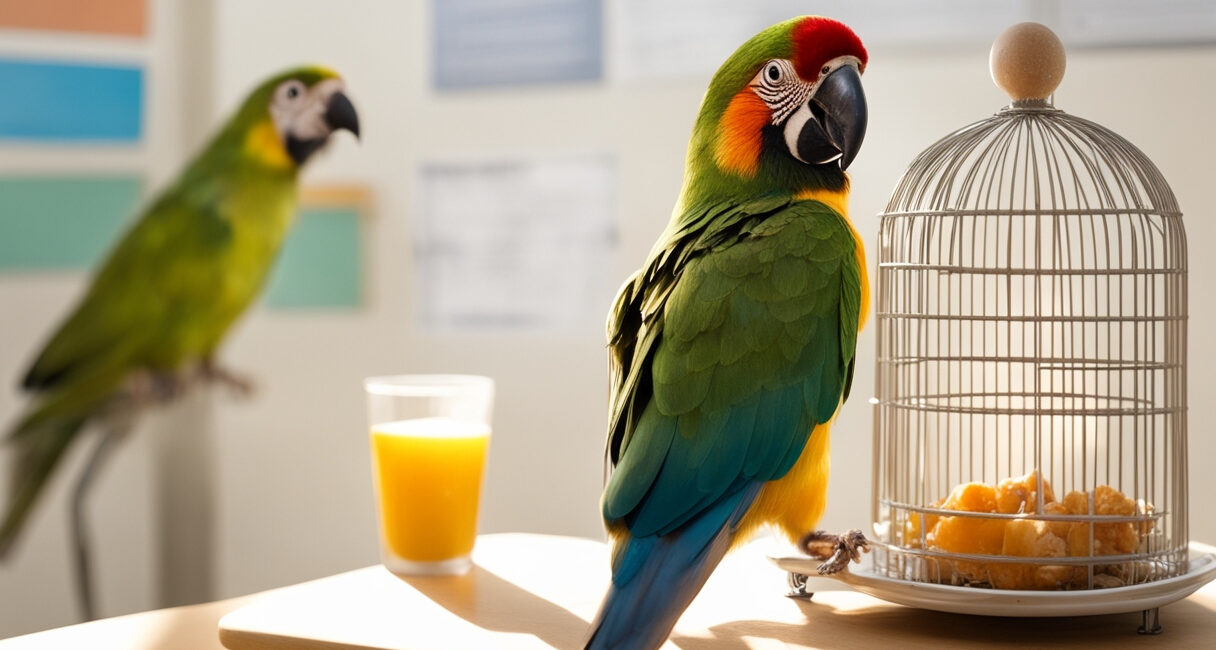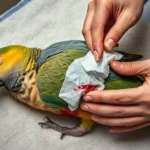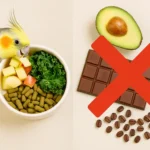Why Bird Nutrition Matters More Than You Think
Your bird’s diet isn’t just about seeds and pellets—it’s the foundation of their health, happiness, and lifespan.
Malnutrition is one of the leading causes of illness in pet birds. Many owners unknowingly feed imbalanced diets, thinking they’re doing everything right.
But don’t worry. This guide breaks down the most important bird nutrition facts you need to know, so you can feed your feathered friend with confidence.
Understanding the Basics of Bird Nutrition Facts
Birds, like humans, need a mix of essential nutrients to stay healthy. These include:
- Proteins for tissue repair and growth
- Carbohydrates for energy
- Fats for insulation and vitamin absorption
- Vitamins like A, D3, E, K, B-complex
- Minerals such as calcium, phosphorus, iodine, and iron
- Water – often overlooked, but crucial
Each species of bird has unique dietary needs. A parrot’s nutrition requirements differ vastly from a finch or canary.
👉 Pro Tip: Always research species-specific needs before planning a diet. For deeper insight, check out our full guide on [avian nutritional requirements](Insert link).
Seed-Only Diet? Think Again
Seeds are high in fat and low in essential nutrients.
Birds love them—but a seed-only diet can lead to obesity, fatty liver disease, and vitamin deficiencies.
Instead, seeds should make up no more than 20–30% of a balanced diet.
Safer Alternatives to Seed-Only Diets:
- Pelleted diets formulated for your bird species
- Fresh fruits and vegetables (more on this below)
- Cooked grains like quinoa, brown rice, oats
👉Learn more in our post on [replacing seed diets safely](Insert link).
Fresh Fruits and Vegetables: Nature’s Superfoods
Adding a rainbow of fruits and veggies is a game-changer in bird nutrition.

Give Your Feathered Friend a Stylish Getaway!
The MidWest Homes for Pets Avian Adventures Poquito Avian Hotel in Ruby is the perfect temporary home for your bird. Ideal for travel, short-term boarding, or even a sunny outdoor visit, this sturdy and safe cage offers easy, no-tool assembly and a bird-proof lock for peace of mind. Includes perches and food bowls.
Bird-safe fruits:
- Apple (no seeds)
- Blueberries
- Mango
- Papaya
- Banana
Bird-safe veggies:
- Carrots
- Sweet potato (cooked)
- Kale
- Broccoli
- Peas
Introduce new foods slowly. Birds can be picky eaters and may need time to try unfamiliar textures.
⚠️ Avoid: Avocado, rhubarb, onions, garlic—toxic to birds!
Pellets: The Modern Staple of Avian Diets
Pellets are formulated to provide complete nutrition, balancing all vital vitamins and minerals.
They’re a great base diet for most pet birds—if chosen wisely.
What to look for in a good pellet:
- Free from artificial colors or added sugar
- Species-specific formulas
- Trusted brands like Harrison’s, Roudybush, or ZuPreem
Start by mixing pellets with your bird’s favorite seeds and slowly increasing the pellet ratio over time.
👉 Affiliate Tip: Check out [this top-rated pellet mix for parrots](Insert link) that vets recommend.
Treats and Supplements: Fun but Fussy
Treats are okay—in moderation.
Choose healthy options like millet sprays, small bits of unsalted nuts, or baked birdie bread.
Avoid human snacks, chocolate, chips, or anything sugary.
Supplement only if your vet recommends it. Over-supplementing can be dangerous.
Adding natural sources of nutrients is often better than synthetic supplements.

Give Your Feathered Friend a Stylish Getaway!
The MidWest Homes for Pets Avian Adventures Poquito Avian Hotel in Ruby is the perfect temporary home for your bird. Ideal for travel, short-term boarding, or even a sunny outdoor visit, this sturdy and safe cage offers easy, no-tool assembly and a bird-proof lock for peace of mind. Includes perches and food bowls.
Hydration: The Forgotten Nutrient
Fresh, clean water must be available at all times.
Change it daily. Clean the dish often.
Avoid vitamin drops in water—they can promote bacterial growth.
Hydration is as essential to bird wellness as food.
👉 Read more on [avian hydration habits](Insert link).
Creating a Feeding Routine That Works
- Birds thrive on routine.
- Feed fresh foods in the morning when birds are hungriest.
- Leave pellets and clean water available throughout the day.
- Rotate fruits and veggies daily to add variety and reduce pickiness.
- Use a printable schedule or a whiteboard to track their meals.

Image Credit: Wild Harvest Table
Give Your Feathered Friend a Stylish Getaway!
The MidWest Homes for Pets Avian Adventures Poquito Avian Hotel in Ruby is the perfect temporary home for your bird. Ideal for travel, short-term boarding, or even a sunny outdoor visit, this sturdy and safe cage offers easy, no-tool assembly and a bird-proof lock for peace of mind. Includes perches and food bowls.
Common Bird Nutrition Mistakes to Avoid
❌ Feeding only seeds
❌ Offering fruit with pits or seeds (apple seeds = toxic!)
❌ Giving too many treats
❌ Ignoring species-specific needs
❌ Using water bowls that aren’t cleaned daily
👉 Affiliate Tip: Upgrade to an [easy-to-clean stainless bird bowl set](Insert link) to keep things hygienic and simple.
Frequently Asked Questions (FAQs)
Can birds eat peanut butter?
In very small amounts and only unsalted, unsweetened types. Too much fat otherwise.
Is it okay to give bread or crackers?
No. These are low-nutrient fillers and may contain additives harmful to birds.
How do I switch my bird from seeds to pellets?
Do it gradually over weeks. Mix increasing amounts of pellets into their seeds, and reward interest with praise or a healthy treat.
Are bird vitamins necessary?
Only if your vet recommends them. A proper diet usually provides everything they need.
Final Thoughts & Next Steps
eeding your bird the right way is more than a duty—it’s an act of love.
By understanding the essentials of bird nutrition facts, you’re giving your bird a longer, happier life filled with song, play, and vibrant feathers.
👉 Affiliate Reminder: Ready to upgrade your bird’s diet? [Explore this vet-approved starter nutrition kit](Insert link) and give your bird the best start today.



